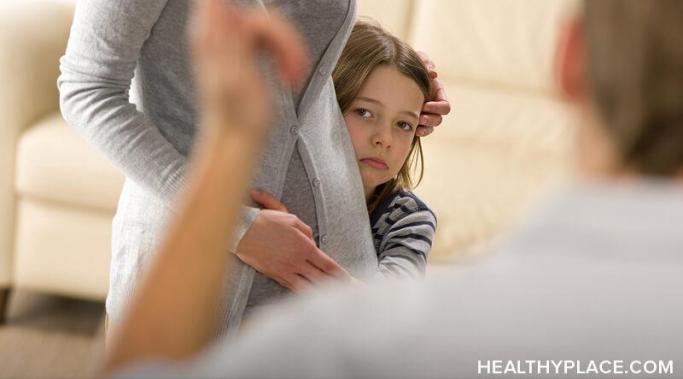Caregiver guilt has been something that has featured heavily for me since my brother, Josh,* was diagnosed with anxiety and depression. For me, this caregiver guilt is a very uncomfortable emotion that I struggle to talk about -- and I want to pick it apart a little bit in this post.
Parenting and Mental Illness
Speaking openly about mental illness helps, but one thing I know for certain is that ''talking about your feelings'' cannot cure a diagnosable mental illness. To purport this idea is reductive and shows a deep-rooted misunderstanding of the complex physiological roots of psychiatric conditions. However, through supporting my brother in his experiences with anxiety and depression, I have come to appreciate that talking openly about emotions does play an extremely important role in a family where mental illness is present.
Mental illness can impact a family in many ways, and the children of parents with mental illness need loving support. Children are very sensitive and sometimes clue into differences in behavior that adults miss. As adults, we are often caught up with other concerns: our careers, finances or the latest Netflix series, to name a few. We sometimes forget to pay attention to those around us and may overlook subtle changes. Children, on the other hand, notice everything. I say this from experience: children of parents with mental illness see and feel all of it.
This year, I invite bipolar moms to join me in resolving to meet our own needs in 2017. Instead of focusing on our faults this January, we can instead look past those faults to see the needs they represent. And instead of berating ourselves over that need, discrepancy, or flaw, I want to make 2017 the year we find a way to meet our needs and live healthier lives (Taking Care of Myself is the Best Way to Care for My Family).
Before the new year begins, every mom needs to hear these simple words to preserve her sanity: good job. "Good job" may seem simple and a bit trite, but Christmas has a way of leaving mentally ill mamas strung out, exhausted, and defeated (Stressed Out! Stress, Mental Health, and Our Sense of Control). After all of the efforts spent making Christmas magical for everyone else, the house is a big old mess, the kids are exhausted, and daddy's gone back to work. Mama's left, again, to put it all back together, take down the decorations, and get the family ready for a brand spankin' new year. It all seems a bit impossible. So Mama, before you start undecorating, washing dishes, and folding another load of Christmas pajamas, hear me out. Let's talk about what every mom, mentally ill or not, needs to hear before the new year begins.
Your health is something you need to consider before a bipolar pregnancy, along with your marriage. If you live with bipolar disorder, the decision of whether or not to have a baby is about more than just your psychiatric condition. Your overall health must be considered, also. Here are some health concerns to review before getting pregnant while living with bipolar disorder.
Your marriage is something to consider before a bipolar pregnancy. When you live with bipolar disorder, whether or not you should get pregnant is a difficult decision (Why I Chose to be a Mother Despite My Bipolar Disorder). There is a lot to consider before a bipolar pregnancy, and the stability of your marriage needs to be at the very top of this list.
Should women with serious mental illnesses have children? There are many respected, professional women living with bipolar disorder who have decided against having children (I Can't Get Pregnant--I Have Bipolar Disorder). I chose to have children, to take the risks associated with a bipolar pregnancy, postpartum dangers, and passing down my bipolar disorder. Here’s why.
Talk to your college student about mental illness, even if you do not believe your child is displaying any symptoms of a mental illness. Not only do college students often become symptomatic for the first time when they are away at college, but they are also much more likely to die of suicide (Discuss Mental Illness and Suicide with College Students). While we cannot prevent mental illness, we can equip our college students to recognize symptoms of mental illnesses and suicidality and get help for themselves or a friend if necessary.
We need to discuss mental illness and suicide with college students as every college student needs to be educated about these things. In a society where we educate our teenagers on birth control, alcohol and drug abuse, along with religious, racial, and gender preference awareness, we are failing to educate our college-bound teenagers on mental health issues. For their own wellbeing, we must educate every college student on mental illness and suicide.









